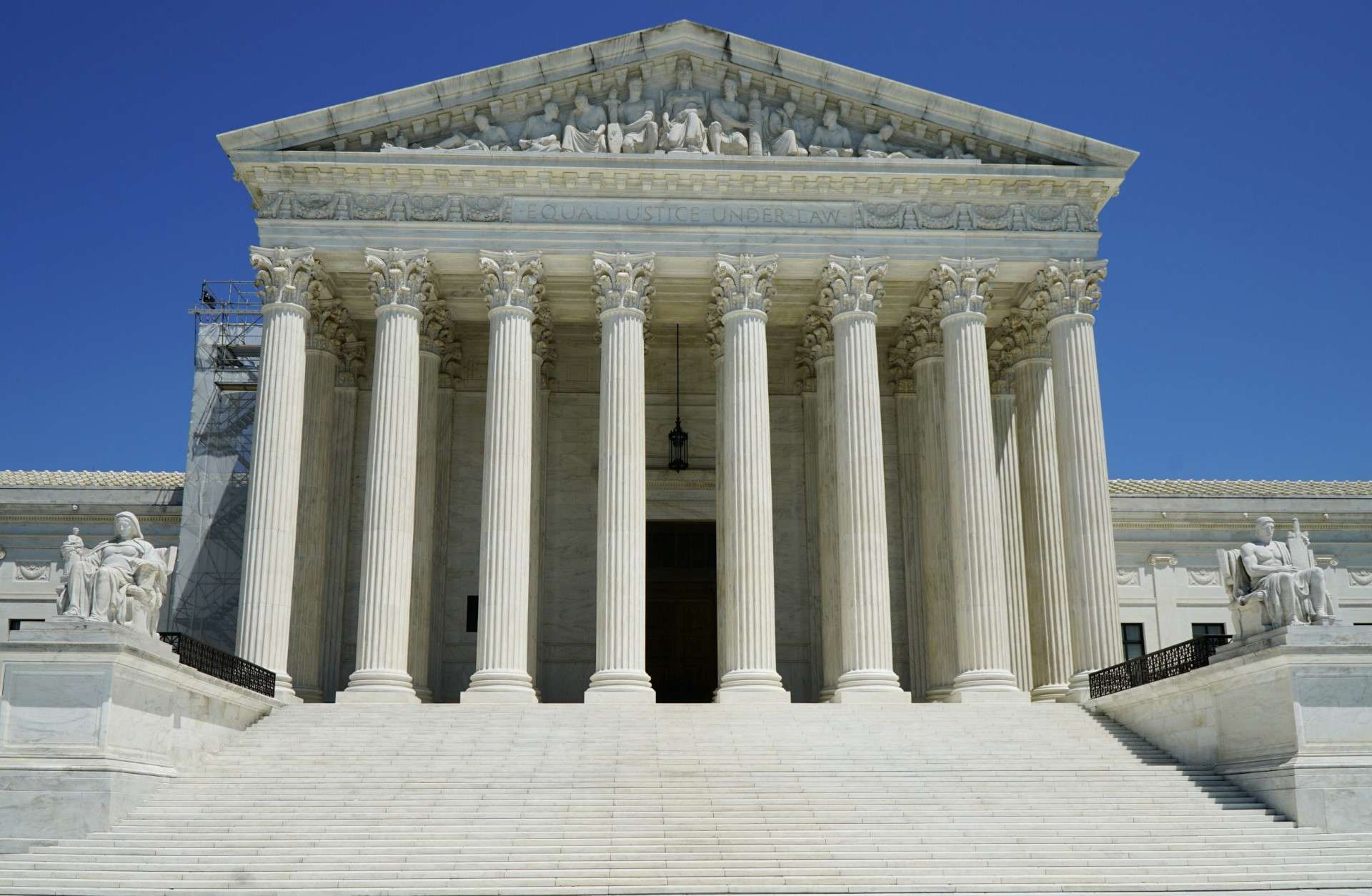
NICK GOSNELL
Hutch Post
HUTCHINSON, Kan. — The United States Supreme Court's 9-0 decision in Sackett v. EPA handed down Thursday, May 25 is seen as an important check on federal administrative power for farmers and ranchers. It also may be a bellwether to the court's upcoming reduction in deference to the executive branch more generally.
The EPA's rule, as it was written at the time of the Sackett lawsuit, basically tried to regulate every drop of rain that falls in the United States, whether or not a flower grows.
"Everybody is for clean water," said Kansas First District Congressman Tracey Mann. "What happened is the Obama administration rolled out all these regulations, Trump rolled them back, Biden has now rolled them back forward. That would give the federal government the ability to regulate farm ponds, drainage ditches, way beyond the scope and the purview of what the Clean Water Act ought to be."
According to Professor of Agricultural Law and Taxation at Washburn University School of Law, Roger McEowen, those regulations will no longer be in effect.
"The court unanimously, that's the key point, this was 9-0, voted to reject what's known as the significant nexus test," McEowen said. "That's the multifactored test for determining whether some isolated wetland is sufficiently connected to a navigable water of the United States such that it brings the federal government's jurisdiction over that isolated wetland."
A different test will now be applied, as a 5-4 majority of the court agreed to narrow the WOTUS definition significantly.
"The Clean Water Act's use of waters encompasses only those currently permanent, standing or continuously flowing bodies of water forming geographical features that are described in ordinary parlance as streams, oceans, rivers and lakes," McEowen quoted from the opinion. "That is the key quote of the court. It does not mean a dry stream bed in western Kansas. It does not mean a private pond. It does not mean a ditch that sometimes has water in it. That's how big this is."
It also is a potential signal that regulations may be further curtailed by the court in the future.
"The Supreme Court in this case, did not defer to the agency, the EPA," said Lumen "Lou" Mulligan, who will take his post as the Dean of the UMKC School of Law in July. "There's a long line of cases going back to the 1980s, this case called Chevron, where the Supreme Court has been deferring to an agency. Hey, this particular bit of language in the statute may be vague. Agency, what do you think? So long as its reasonable, we defer to you. That's been the law for about forty-some years in the United States."
There is a case due to come before the United States Supreme Court in its next term called Loper Bright Enterprises v. Raimando that could allow the Court to further weaken or eliminate Chevron deference.
"This is a great case, not only for private property rights, but, in tune, because it's a great case for private property rights, it's a good case for the Constitution," McEowen said. "The Court is saying, we're not going to let some other type of agency write the rules. Under the Constitution, the Congress is responsible for that. What the agencies did goes way beyond what we think Congress intended. What they are saying is Congress, if you don't like the opinion, rewrite your statute, but we're not going to let the agencies do all this stuff."
Though Mulligan isn't ready to specifically predict what the court's rationale might be because they haven't heard Loper Bright yet, he can see where this may be going.
"Certainly, the Sackett case lays a brick in a wall separating agency action from deference," Mulligan said. "We'll have to see which way this goes. You can imagine the opinion already...just last year, we refused to defer to the EPA's understanding of Waters of the United States and took on a fresh look at it from our own point of view...we're going to do it again more generally. You can see this laying that groundwork."
Mann sees the Sackett decision as supportive of actions his office has tried to make in Congress.
"It's about local control," Congressman Mann said. "By the way, our ag producers, farmers and ranchers, they are the world's original conservationists. They don't want and will not do things that are detrimental to their farming practices, caring for their land and being good stewards."
The federal narrowing of the rule doesn't mean local and state jurisdictions won't regulate something if they believe it is needed, though.
"This doesn't deal with anything the states might do," McEowen said. "State and local governments, keep in mind, they began regulating wetlands before the EPA and the Army Corps did, well before 1972. Many are going to continue to do so. This gets the federal government out of landowners hair, which is a good deal. It's a lot easier to deal with state and local people than it is to deal with the feds."
McEowen added that this is a fight that the EPA didn't have to pick in the first place.
"This case never had to occur," McEowen said. "We might not have ever gotten this result had the EPA not been so belligerent with the Sacketts. They backed the Sacketts into a corner and the Sacketts had absolutely no option but to go to court. The fines were stacking up. They were well over $1 million in fine. You have no choice. You can't pay that. You have no choice but to fight it in court. I would say this, the EPA brought all of this upon themselves."
It remains to be seen how the Biden administration might rewrite water regulations going forward.
CLICK HERE to download the Hutch Post mobile app.
CLICK HERE to sign up for the daily Hutch Post email news update.





